Building the Unbundled Ecosystem
Unbundling starts at the policy and system level, then moves onto identifying unifying competencies, followed by creating core learning experiences to achieve those competencies.
1.1 Unbundling the Ecosystem
1.2 Building Competencies
1.3 Designing Learning Experiences
1.4 Curating the Opportunities
1.5 Rebundling Learning
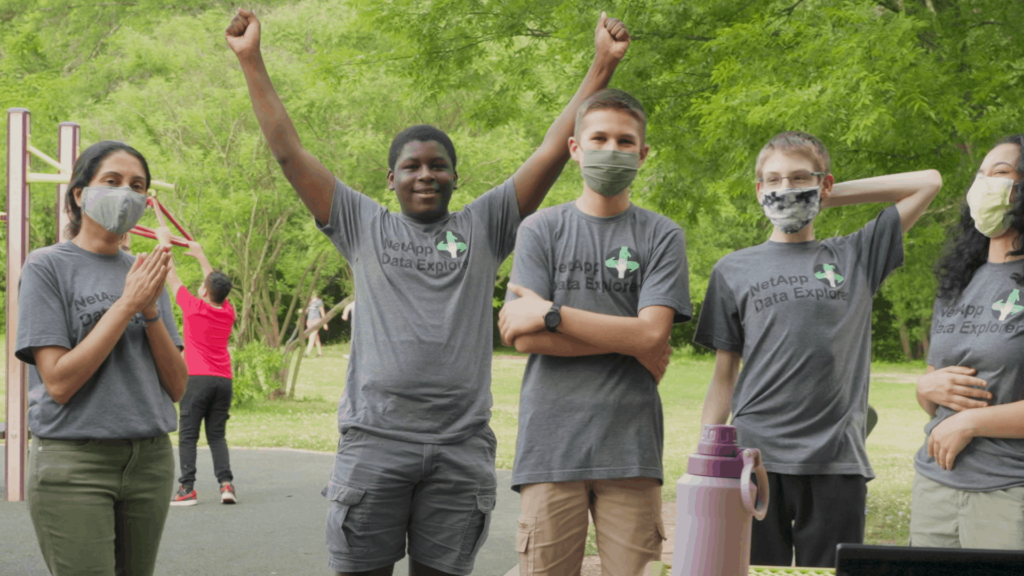
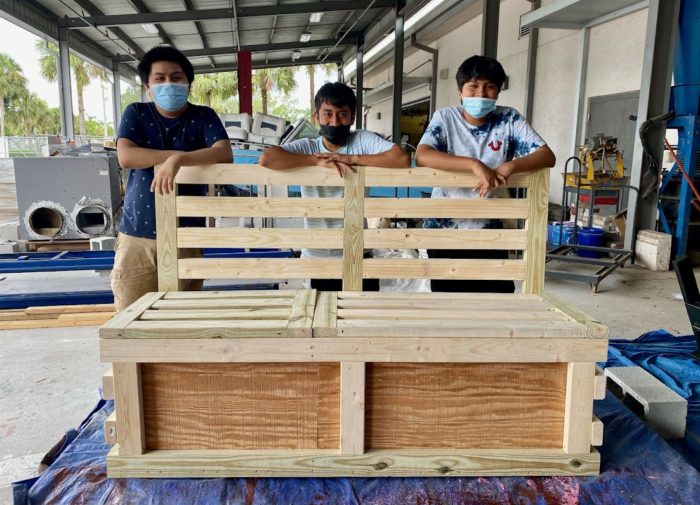

Unbundling the Ecosystem
Vision
Systems and policies allow for learners to unbundle and rebundle experiences from a wide selection of in-system and out-of-system sources.
Unbundling the learning ecosystem occurs at the policy and systems level. Policy includes laws and rules that allow for unbundled learning. Systems are structures that support unbundled learning.
Policies
At the policy level, some states have launched initiatives to increase the options for their learners by broadening the umbrella of what counts as a learning experience and who can offer these experiences. Most existing examples demonstrate course-level unbundling by in-system providers.
Learn Everywhere
New Hampshire’s recent Learn Everywhere initiative allows out-of-system providers to offer learning experiences that count for course credit within the New Hampshire public school system. A number of other states have introduced various levels of policy that allow credit for out-of-school opportunities (ex. North Dakota Learn Everywhere). Dual-enrollment programs are ubiquitous and provide opportunities for students to unbundle at the course level, increasing options and potential for early college credit.
The After School Alliance
The Afterschool Alliance advocates for extended learning opportunities for credit. When we offer a widely expanded ecosystem of learning experiences that can operate outside a constrained model yet still translate, it’s easier for learners to see the possibilities for assembling a personalized learning pathway.
Some states allow for innovation zones to increase flexibility. Three districts in rural Texas have built a Rural Innovation Zone, carved out in state law, to increase flexibility around shared high-demand job-connected pathways. A national advocate for learner-centered education, Education Reimagined has proposed statewide districts to allow for any organization to support unbundled learning experiences. While a number of states have passed legislation that recognizes work-based learning as credit-bearing for college, it is less prevalent in K-12 outside of well-established career and technical education (CTE)/work-based learning experiences. Colorado has established a menu approach to graduation requirements that opens up more opportunities, but in this case the school board (rather than individual students) selects from the menu. Colorado has also passed a number of laws expanding and encouraging access to ecosystem wide learning.
Systems
At the systems level, a handful of in-system providers offer unbundled learning experiences at a smaller grain size than the course level.
VLACS (Virtual Learning Academy)
Virtual Learning Academy Charter School (VLACS), a long-standing virtual public charter school in New Hampshire, allows students to link learning experiences from different providers (or build their own) with competencies. These competencies have equivalence with fractions of credit (micro-credit).
My Tech High
My Tech High partners as a provider to public schools, supporting learning for students who want an unbundled experience. My Tech High offers their own curriculum, a variety of external curricula, and opportunities to build your own curricula. The provider also supports credit for out-of-system experiences (extracurriculars, etc.).
Many in-system providers credit out-of-system experiences through work-based learning experiences, typically affiliated with a CTE program. These come in the form of internships or apprenticeships where students get credit for a real-world learning experience. The value of out-of-classroom learning has gained increased attention within the education landscape. With increased demand and a large ecosystem of providers, models of viable unbundled ecosystems are becoming more probable.
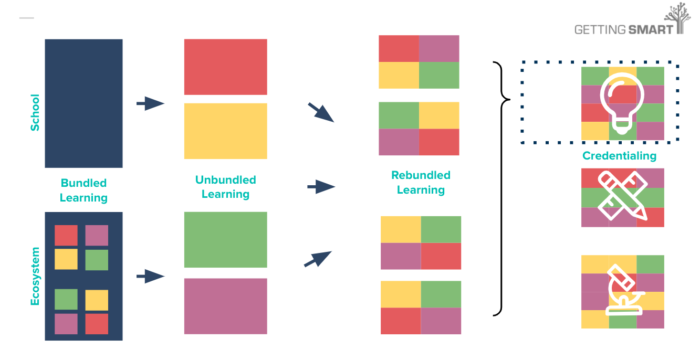
Building Competencies
Vision
Coherent competency sets connected to employer need and citizenship are widely available with representative assessment around which a personalized pathway of learning experiences is built.
Most typical education ecosystems require permission. Homeschool and private school models are loosely governed at the federal or state level, while public charter schools (and other similar structures) have some freedoms.
That being said, the vast majority of learners live within a permissioned system, with restrictions governing some to all aspects of the learning experience. A fully unbundled ecosystem, on the other hand, could be permissionless; that is, a student could choose whatever pathway they like with whomever they would like and learn whatever they would like. However, to advance an unbundled ecosystem, a framework of transferable competencies and a competency-based system is a critical backbone. Competencies are broad but measurable learner outcomes that serve as the foundation for learning experiences. In an unbundled system, these competencies could be articulated at the state, regional, local, or, indeed, the family level—with likely control at the state/local level.
Aurora Institute defines competency-based systems with the following criteria:
- Students are empowered daily to make important decisions about their learning experiences, how they will create and apply knowledge, and how they will demonstrate their learning.
- Assessment is a meaningful, positive, and empowering learning experience for students that yields timely, relevant, and actionable evidence.
- Students receive timely, differentiated support based on their individual learning needs.
- Students progress based on evidence of mastery, not seat time.
- Students learn actively using different pathways and varied pacing.
- Strategies to ensure equity for all students are embedded in the culture, structure, and pedagogy of schools and education systems.
- Rigorous, common expectations for learning (knowledge, skills, and dispositions) are explicit, transparent, measurable, and transferable.
State policy often focuses on #4, as learning has historically been grounded in seat time equivalence to credit. State legislation has allowed for waivers of seat time in almost every state, with variation in how the laws are written and who has control. Defining which knowledge, skills, and dispositions (#7) are expected at the end of a learning journey is core to the success of an unbundled ecosystem.
Unlike state standards, which articulate specific content and skills, competencies are broad outcomes that, when linked to meaningful learning experiences, provide a strong foundation of knowledge, skills, and dispositions that support the development of well-informed citizens who can earn a family-sustaining wage, live a personally fulfilling life, and participate meaningfully in civic life. Core skills in literacy and math are still important, as are technical skills around specific industries, and these must all be combined with or complementary to broader transferable competencies.
Competencies should be designed around both employer need and civic responsibility. America Succeeds’ Durable Skills, McKinsey, World Economic Forum, and Global Education Futures Key Skills all provide a comprehensive global perspective on what skills are most needed. These can serve as the foundation for a competency set. Many efforts are underway at the district, state, and national level to define a coherent set of competencies with a connected progression of criteria that specifies demonstrable skills (e.g., South Carolina, Utah). While not widely adopted, these initiatives have supplied much-needed structure for providing in-system unbundled opportunities.
In addition to work-readiness competencies, examples such as Essential Citizenship Competencies, Idaho’s Citizenship and Civic Responsibility Competencies, and Core Competencies in Civic Engagement describe the skills needed to play an active role as a citizen.
With competencies defined, employers, the military, or higher education can begin to link verified badges of proficiency. The badging and credentialing network (already robust), once connected to learning experiences, will become a powerful record of demonstrated proficiency for every learner. Verifying proficiency will depend on authentic and reliable performance assessments that allow learners to demonstrate what they know and can do (see XQ Learner Outcomes).
How to Citizen
Baratunde Thurston has a podcast called How to Citizen, in which he assesses organizations in various verticals that are innovating in the citizenship space. We were fortunate enough to talk with him on the Getting Smart Podcast. Here’s a sample of him explaining why building relationships is a core competency.
Designing Learning Experiences
Vision
Every person has the opportunity to design and support learning experiences that are available to learners, rated for quality, and connected to competencies that can be verified.
Curriculum design almost universally focuses at the course level, typically linked to a credit earned within the Carnegie unit system. An abundance of providers offer course credit unbundled from other traditional in-system structures (like most online providers) and businesses (internships and apprenticeships) that are linked to course credit. Early efforts at the unbundled course level emerged with the massive open online course (MOOC) movement offering free/low cost learning online (Coursera, EdX, Udacity, etc.) This granularity of unbundled learning has added significant choice to the ecosystem, but it still has the guardrails of time spent in, and completion of, a course to earn credit rather than awarding credit based on demonstrated proficiency in a competency.
Unbundled systems need to decrease grain size to the learning experience level so that learners can build pathways that make sense relative to their future goals by reassembling a set of learning experiences.
Outschool
Outschool offers 140,000 micro-courses taught by educators worldwide and partners with individual students or in-system schools and districts.
Below Amir Nathoo, CEO of Outschool, discusses the impetus for this learning model.

The Knowledge Society
The Knowledge Society is an afterschool program that helps learners navigate interests and encourages them to contribute to their communities with a series of client-connected projects.
Below Navid Nathoo, founder of The Knowledge Society, discusses the power of empowering students to “learn how to figure things out.”

Symphony Workforce
Symphony Workforce is a virtual real-world industry connected platform where participants solve problems presented by partnered organizations and companies. Traditional out-of-system opportunities are found in science centers, art museums, design labs, and other non-profit organizations around the country.
Below Todd Smith, CEO of Symphony Workforce, makes a call for valuable workplace experiences for young learners.
All of these organizations design learning experiences that, in an unbundled ecosystem, can be part of the formal learning pathway.
With an open marketplace of learning experiences, quality must be ensured. Most online providers already have built-in feedback mechanisms for users for both rating and written comments. The same could hold true for Learning Experience Designers and already exists in early format at Teachers Pay Teachers (albeit teacher to teacher rather than direct to student) and Outschool, which connects learners to teachers from around the world. Learners rate resources and evaluate courses.
The technology industry offers significant opportunities to develop technical skills before and while employed. IBM SkillsBuild, AWS Educate, Salesforce Trailhead, Grow with Google, and Microsoft Learn all offer affordable or free technical skills learning unbundled from a traditional K-12 curriculum.
As the marketplace expands, a much larger pipeline of skilled Learning Experience Designers needs to be developed. These Learning Experience Designers could offer up coaching, tutoring, mentoring, advising, or any other service that a learner might need. Larger school networks like ASU Prep and Summit Learning offer up online learning courses that eventually could be unbundled to the learning experience level.
Curating the Opportunities
Vision
Every learner can access and contribute to a searchable curated database of learning experiences to find opportunities to both contribute and participate.
Once the ecosystem is unbundled, the opportunities must be curated in an equitable, accessible format. Numerous efforts are underway to move this unbundled curation system forward.
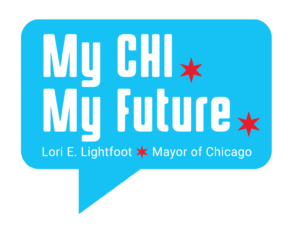
My Chi My Future
In Chicago, My CHI My Future (formerly Chicago: Cities of Learning) compiles many opportunities for high school students in Chicago.
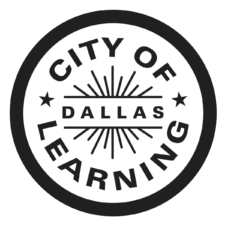
Dallas City of Learning
Replicating the My CHI model, Dallas City of Learning offers a searchable database of curated opportunities for learning. Anchored by organizations such as Dallas-based Big Thought, these ecosystem databases are pivotal to unbundled systems.
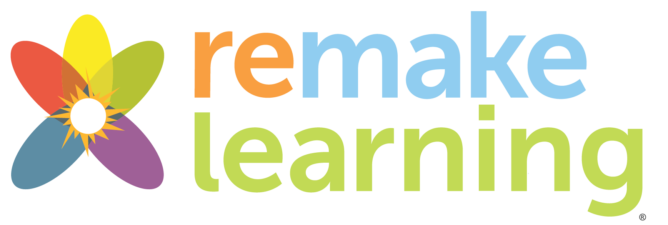
Remake Learning
Pittsburgh’s Remake Learning, established in 2007, “is an open group of interconnected, creative, and innovative people and organizations in the greater Pittsburgh region.” Collectively, Remake Learning’s network builds a coordinated learning experience ecosystem for students.

Cities of Learning
In Europe, Cities of Learning allows any community to build a regional ecosystem of unbundled opportunities.
ReSchool Colorado
In Colorado, ReSchool Colorado built a searchable database called Discover Learning that describes ecosystem-wide learning experiences.
Through expansive and accessible curation, all learners can discover, select, and reflect on a quality set of learning experiences. Historically, few people controlled all content and delivered this content to those who did not have access. Storytelling played a large role in sharing information across generations. With the advent of mass printing, access increased. This led to publishing companies and eventually textbook companies that, until the advent of the digital age, controlled content distribution.
As the internet emerged, content increasingly became more widely distributed, and many organizations could produce accessible content. Today, learners can access a vast number of resources to learn a new skill or understand new content. All of these changes have benefited the individual learner despite challenges concerning accuracy and bias that emerge when decentralized systems become available. With greater opportunity comes decreased quality oversight. Yet, through strong feedback mechanisms, quality can be maintained.
Ultimately, a marketplace (or an interoperable marketplace of marketplaces) is critical for a robust curation system. This marketplace is two-way where individuals and organizations can both contribute learning experiences and choose to participate in a learning experience. These prosumers, meaning both producers and consumers, will drive up the quantity and quality of learning. Contributed learning experiences may be those in which other learners can participate or personalized to the designer who contributed.
Rebundling Learning
Vision
Every learner has access to a high-quality coach that can support building pathways of rebundled learning experiences.
The final step in building an unbundled ecosystem is learners working in partnership with coaches to co-design and bundle learning experience pathways that consist of content access, skill development, instruction, and assessment from a variety of sources.
Moving away from the standard teacher to class model, an unbundled ecosystem requires high quality coaches who support learners (and their families or guardians) on the journey. These coaches do not need to be experts in any particular subject matter, but they must be well-informed on supporting learners as they access and build within the ecosystem.
DiscoverU offers support to enroll learners in out-of-school opportunities. These learning coaches (ex. Opportunity Advisors, Learning Facilitators) co-design and guide learners in choosing or creating learning experiences that mapped to long-term professional goals for each individual.
Sora Schools provides high school students with decision making tools and responsibility to bundle project-based learning experiences together to earn middle or high school credit.
When we implement these unbundled systems, learner choice on how to demonstrate proficiency (i.e., choose your own learning experience or design your own learning experience) is critical. Competency-based education without ensuring that the learner is at the center will not move the needle enough. Self-assessment and expert assessment around proficiency collectively lead to a system that can record and show growth for learners. Badging these proficiencies and linking them to a digital wallet (see Technology section) supports documentation of student growth.
The rebundled ecosystem relies heavily on systems and structures to build permissionless processes, including: a set(s) of competencies tied to the existing and future needs of communities and regions, innovative learning experiences connected to these competencies, a marketplace of curated learning opportunities, and a system to rebundle and organize demonstrated proficiency.
Key Takeaways
Change is Underway
Many of the core components of an unbundled ecosystem are in place, but few have been combined for maximum impact.
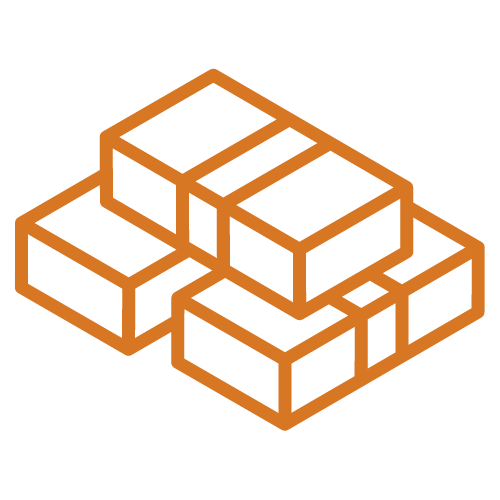
Unbundled for All
An Unbundled Ecosystem is most effective if it applies to both private AND public institutions.

